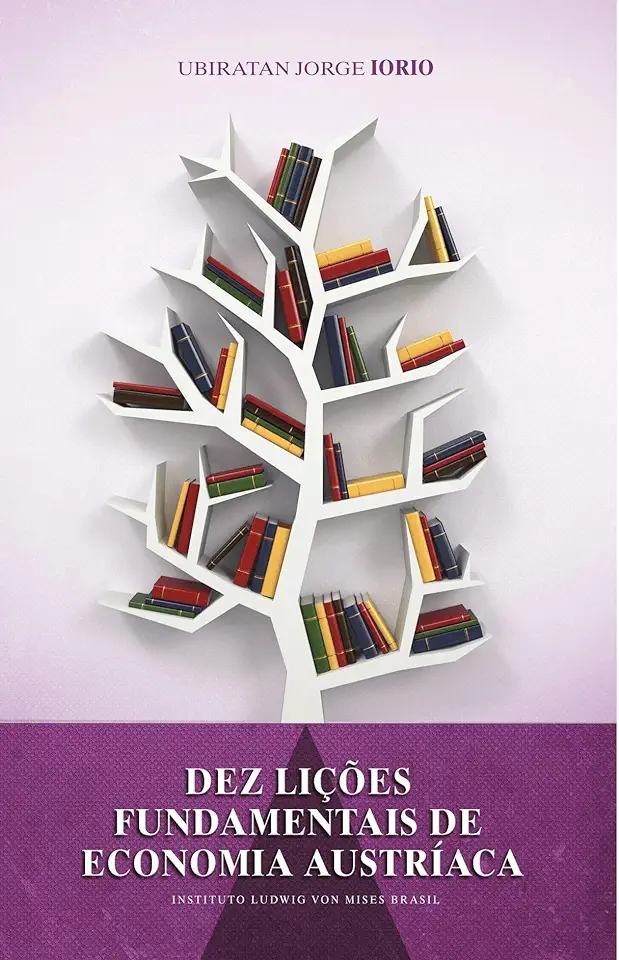
Ten Fundamental Lessons in Austrian Economics - Iorio, Ubiratan Jorge
Ten Fundamental Lessons in Austrian Economics: A Comprehensive Guide to the Austrian School of Thought
Introduction
In "Ten Fundamental Lessons in Austrian Economics," renowned economist Ubiratan Jorge Iorio presents a comprehensive and accessible introduction to the Austrian School of Economics. This book offers a thorough exploration of the key principles and concepts that underpin this influential economic school of thought.
Lesson 1: The Importance of Individual Action
Iorio begins by emphasizing the significance of individual action in economic analysis. He argues that the economy is not a mechanical system but rather a complex network of interactions between individuals making choices. This focus on individual agency sets Austrian economics apart from other economic schools of thought that prioritize aggregate data and statistical analysis.
Lesson 2: The Role of Subjective Value
Iorio delves into the concept of subjective value, a cornerstone of Austrian economics. He explains that the value of goods and services is not determined by objective factors such as labor or production costs but rather by the subjective preferences of individuals. This understanding of value has profound implications for economic theory and policy.
Lesson 3: The Market Process and Spontaneous Order
Iorio explores the market process, a decentralized mechanism that coordinates economic activity without central planning. He argues that the market, through the interaction of individual buyers and sellers, leads to the efficient allocation of resources and the emergence of spontaneous order. This spontaneous order is a key feature of a free and prosperous economy.
Lesson 4: The Nature of Money and Inflation
Iorio provides a clear and concise explanation of the nature of money and the causes of inflation. He emphasizes the importance of sound money, backed by a commodity such as gold, to maintain the stability of the economy. He also discusses the dangers of inflation and its negative impact on economic growth and social welfare.
Lesson 5: The Theory of Interest and Capital
Iorio delves into the Austrian theory of interest and capital, explaining how time preference and the productivity of capital determine interest rates. He challenges the traditional loanable funds theory and argues that interest is not a payment for the use of money but rather a reward for saving and investing.
Lesson 6: The Business Cycle Theory
Iorio presents the Austrian theory of the business cycle, which explains the boom-and-bust cycles that occur in the economy. He argues that these cycles are caused by excessive credit expansion and malinvestment, leading to unsustainable economic growth. This theory provides valuable insights into the causes of economic crises and recessions.
Lesson 7: The Role of Government and Public Policy
Iorio examines the role of government in the economy and argues for limited government intervention. He contends that government policies should be designed to protect individual rights, enforce contracts, and maintain sound money. He criticizes excessive government intervention, such as central planning and welfare programs, as detrimental to economic growth and individual liberty.
Lesson 8: The Ethics of the Free Market
Iorio explores the ethical foundations of the free market, arguing that it is not only the most efficient economic system but also the most just and moral. He emphasizes the importance of property rights, voluntary exchange, and individual responsibility in creating a prosperous and harmonious society.
Lesson 9: The History of Economic Thought
Iorio provides a concise history of economic thought, tracing the development of economic ideas from the classical economists to the present day. He highlights the contributions of key Austrian economists, such as Carl Menger, Ludwig von Mises, and Friedrich Hayek, and their influence on economic theory and policy.
Lesson 10: The Future of Economics
Iorio concludes by discussing the future of economics and the challenges facing the Austrian School. He argues that Austrian economics offers a unique and valuable perspective on economic issues and has the potential to make significant contributions to the advancement of economic science.
Conclusion
"Ten Fundamental Lessons in Austrian Economics" is a must-read for anyone interested in understanding the Austrian School of Economics and its profound implications for economic theory and policy. Iorio's clear and engaging writing style makes this book accessible to both students and seasoned economists alike. Whether you are a seasoned economist or new to the field, this book will provide you with valuable insights and a deeper understanding of the Austrian School's unique perspective on the economy.
Enjoyed the summary? Discover all the details and take your reading to the next level — [click here to view the book on Amazon!]